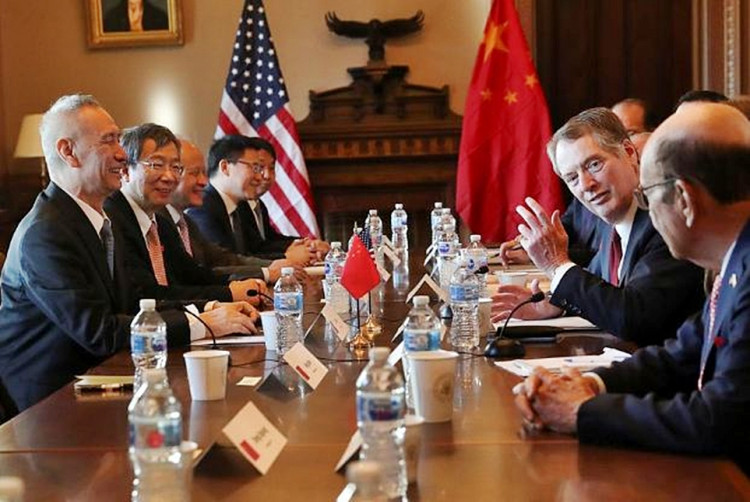China might have made what Washington insiders are calling "unprecedented" proposals on a range of thorny issues, including forced technology transfer. These intractable issues keep bedeviling ongoing negotiations aimed at staving-off additional U.S. tariffs on $250 billion worth of Chinese goods.
Among the demands from President Donald Trump are for China to end practices the U.S. claims result in the systematic theft of U.S. intellectual property and the forced transfer of American technology to Chinese companies.
Sources familiar with the negotiations cited by media said China has made proposals that have gone further than in the past, but no details of these new proposals were revealed. On other issues, negotiators seem to have made progress on details crafted to address U.S. concerns, according to an American official who chose to remain anonymous.
"If you looked at the texts a month ago compared to today, we have moved forward in all areas. We aren't yet where we want to be," claims the official.
"They're talking about forced technology transfer in a way that they've never wanted to talk about before -- both in terms of scope and specifics," he said.
Previous reports revealed both sides working on written agreements in six areas: currency, forced technology transfer and cyber theft, intellectual property rights, services, agriculture and non-tariff barriers to trade. It remains unclear how much real progress has been made in this six area, however.
What the Trump administration hopes for is that more progress will be made with the arrival in Beijing Thursday of U.S. Trade Representative Robert Lighthizer and Treasury Secretary Steven Mnuchin. The duo will again visit China for a new round of talks aimed at coercing China into giving-in to all of Trump's demands.
These face-to-face talks, of which there have been three previous ones, will be followed by a round in Washington next week. Both sides were supposed to have reached a trade deal March 1. Trump was forced to extend the deadline in the face of no discernible progress in the talks.
A U.S. official said talks would continue as long as progress is being made on the core issues.
"It could go to May, June, no one knows. It could happen in April, we don't know," said another anonymous administration official.
There is little doubt, however, that both sides have been unable to resolve their differences over intellectual property and how to enforce a deal, said the same official.






